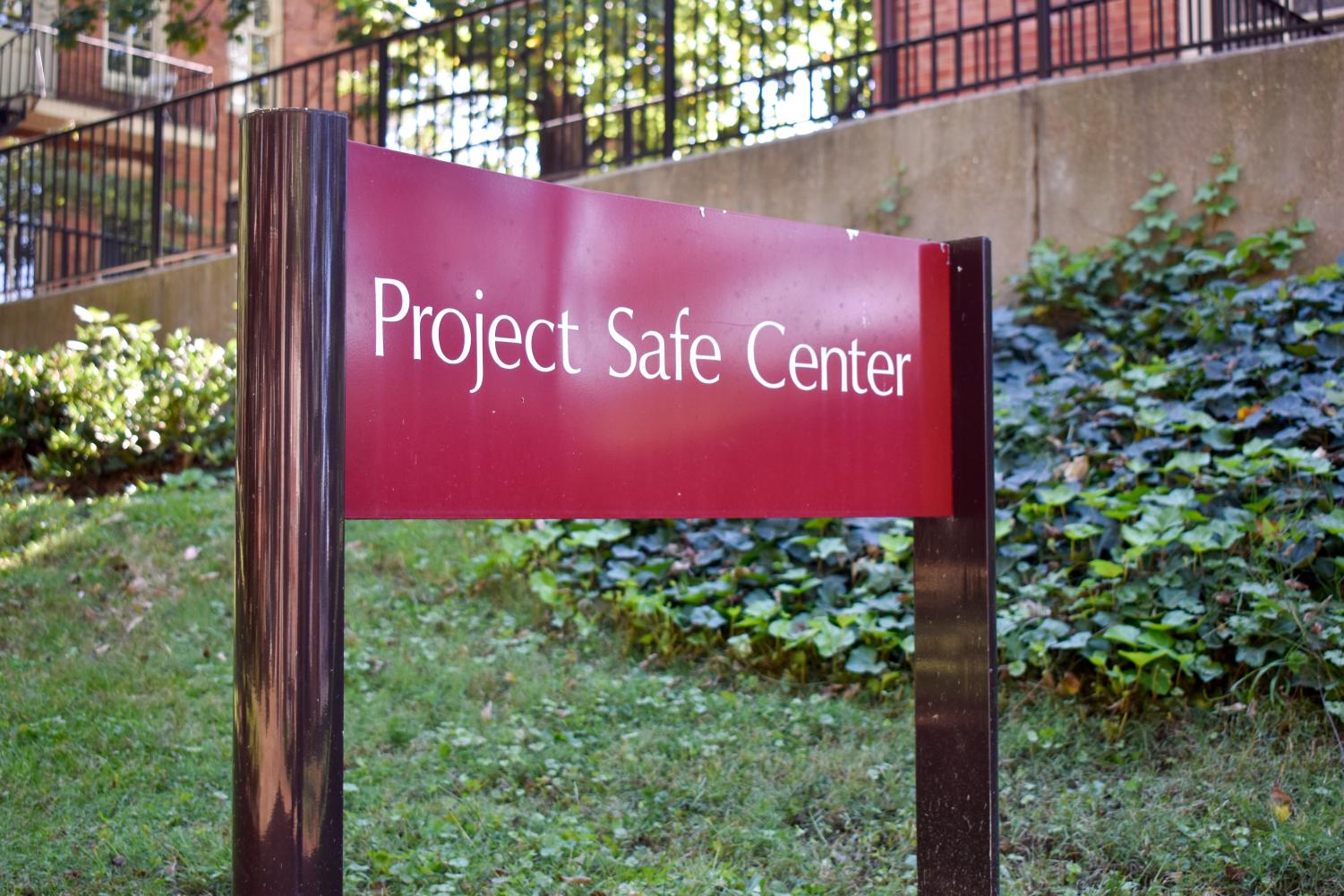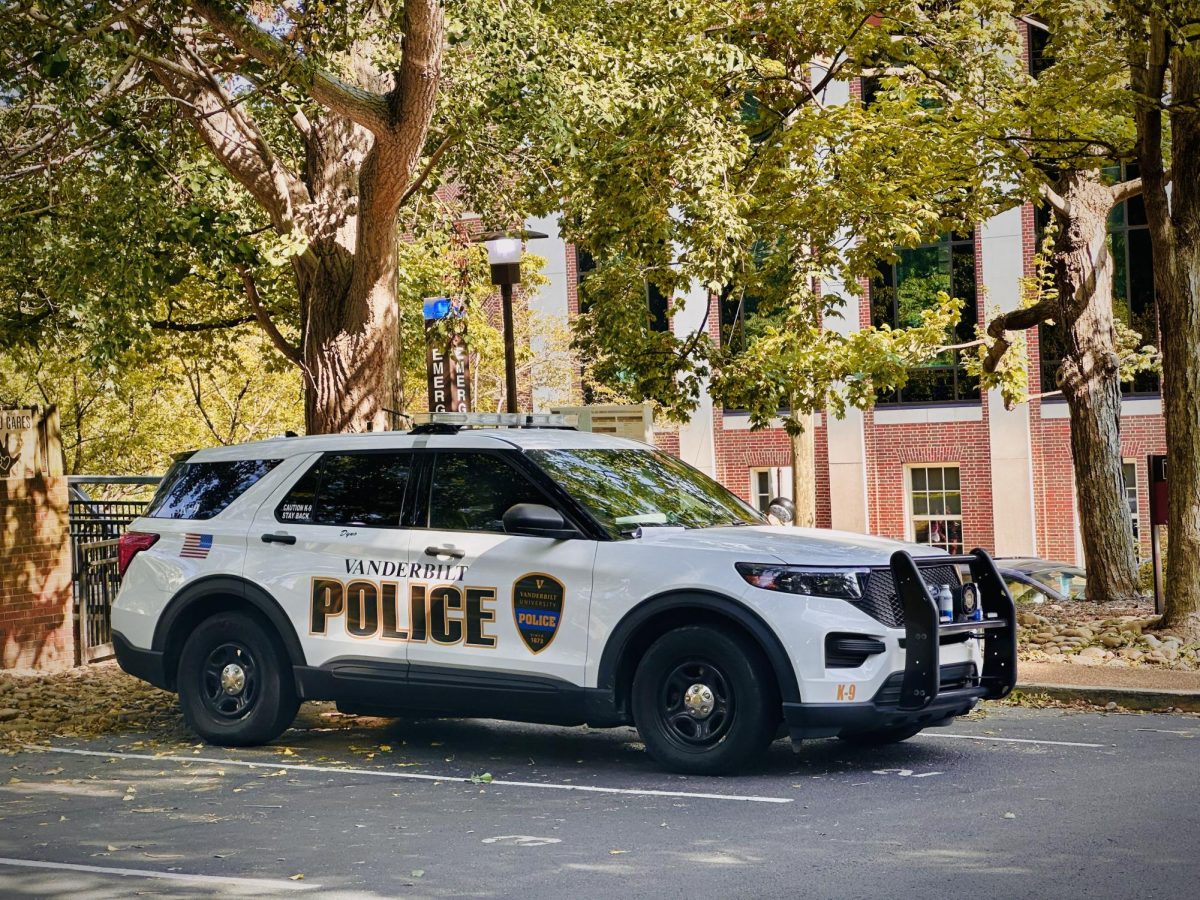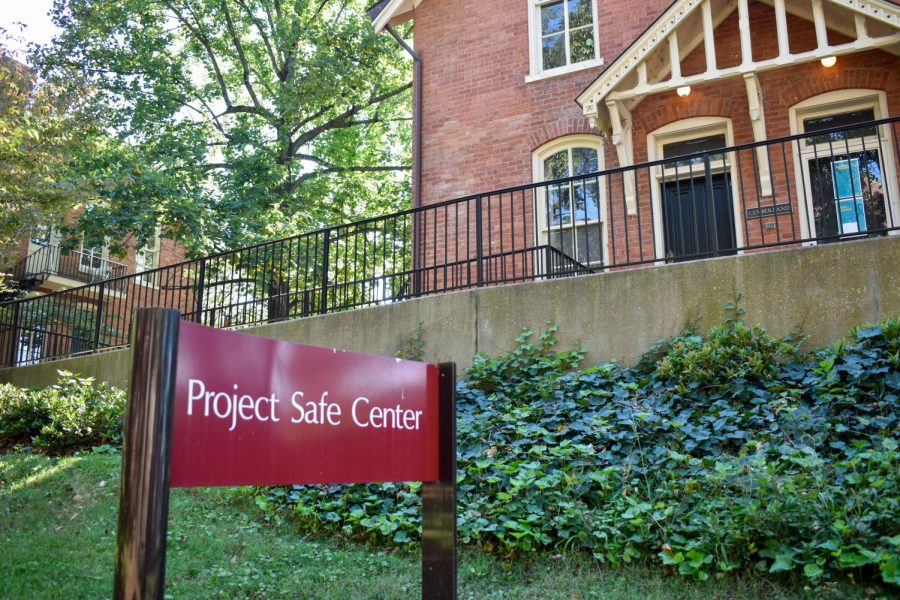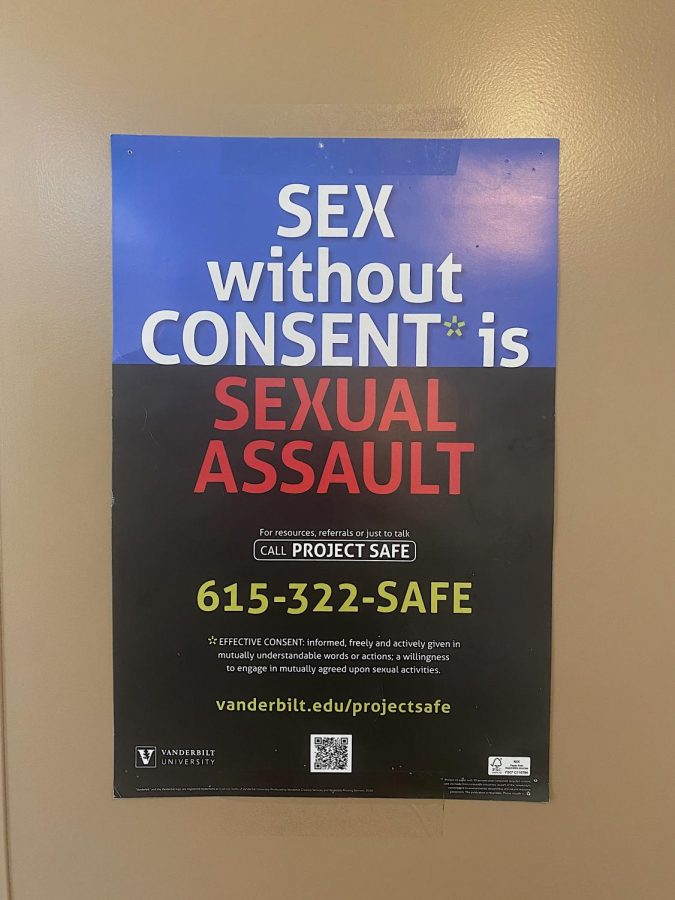Editor’s note: This piece contains mentions of sexual assault.
The sexual assault alerts that pop into our inboxes raise broad questions about how our society is addressing sexual assault and sexism as a whole. Some view these emails as an effective way to put sexual assault on record while others may say it as an overly-casual way to approach such a severe issue. To account for these broad sets of views, a man and a woman from our staff have analyzed the sexual assault emails from their respective perspectives, in hopes of propelling us forward as a community.
We hope that this article continues the important dialogue begun by the brave guest editorial on a student’s survivor story. While we are not survivors of sexual assault ourselves, we stand with those who have been affected.
One Woman’s Perspective
Veronica Tadross: Something that automatically makes my heart drop the second I wake up, is another email detailing a sexual assault case on my college campus. Reading those that I’ve received over the past few months—including the most recent one about three women who were groped in a parking garage—I was frustrated, but I wasn’t surprised.
I am far too used to seeing sexual assault be swept under the rug and never mentioned again. Sexism and sexual assault as a whole—which do not exclusively affect women—are often not discussed. Underlying gender inequities mean that women are disproportionately affected by sexual assault. These inequities are difficult to perceive, and, as a result, we often opt to deny them outright. Men are the primary perpetrators of this selective amnesia. Despite my frustration at seeing these emails, at the very least they counter the status quo by alerting us of the injustices around us and shedding light on the consequences of not addressing a patriarchal society and the pernicious presence of sexual assault.
Our society holds conscious and subconscious biases that men are smarter and more trustworthy than women. Whenever a case of a man sexually assaulting a woman arises, our biases cause us to question the credibility of a woman testifying about her trauma.
I can only imagine how painful this erasure is for women struggling to receive justice in the face of sexual assault.
The emails we’ve received from Vanderbilt over the past few weeks announcing that “a female student was recently sexually assaulted by a male student,” and reminding us that “consent must be clear and unambiguous” are a result of the administration’s compliance with the federal Clery Act. The Clery Act is a direct result of the tragic rape and murder of Jeanne Clery in her college dorm in 1986. The act requires college administrations to announce all cases of sexual assault that pose a serious or ongoing threat to the rest of campus.
While sexual assault remains far too rampant on college campuses, the Clery Act and the resultant alerts of sexual assault may be one way to reveal the injustices inflicted against women in a society that remains biased against them. School-wide sexual assault notifications, apps for women to report harassment and even the ease of screenshotting harassing text messages are opportunities for women to regain their voices and turn the tables on discrimination. Noora Finkleman, the co-founder of HarrassMap, an app allowing women to report incidents of street harassment, recognizes that law enforcement disproportionately discredits women’s harassment experiences.
“We can start documenting that this is happening, that this is a widespread problem,” she said in an interview.
Here on campus, emails notifying the student body are one form of documentation to exemplify that widespread problem. Because of the lack of consequences against perpetrators and the “victim-blaming” mentality, survivors are less likely to report sexual assault crimes, and it’s difficult to get an accurate count of instances of sexual assault.
Still, we have much more progress to make. Just consider how the survivor feels when the university is buzzing about their experience. Are the emails really helping the survivor and making a difference, especially if they don’t want them sent? Does a vague recognition of sexual assault do anything to help the student body? Or does it just entrench women in the normalization of violence against their bodies?
Documentation may be a small step in the right direction in the discussion on sexual assault. Methods like email notifications lend a form of audibility to the experiences of sexual assault survivors, gradually shifting our attitude away from one which systematically silences them.
While I am not a sexual assault survivor myself, it remains a frightening possibility on my mind.
Avoiding solitary nighttime walks and fearing the repercussions of turning down a sexual encounter leave us constantly looking over our shoulders. Vanderbilt should be a safe and inclusive community. It is outrageous that on campus, women are told to avoid walking alone at night. The possibility of sexual assault should never be on the minds of young women. While safeguards enacted by the university can help, more needs to be done by the student body itself to ensure women are not left helpless to the wills of potential abusers
We need to reflect on how we dismiss the experiences of women, take it upon ourselves to attend Project Safe workshops and lectures at The Women’s Center and initiate dialogue on how to support survivors in our lives. While Project Safe’s strong presence on campus certainly represents progress, we need a reset in our minds to reach the progress that legislative mandates cannot achieve alone.
With action and heightened awareness, a future campus and society that is united against sexism and abuse will not only be possible, but predominant.
One Man’s Perspective
Stanley Zhao: The fall semester came and went. Tears from first-semester chemistry are just dried. Tennessee weather is still insisting on teeth-shattering chills. And there are already twelve documented cases of sexual assault on campus.
The other day, I was ready to cozy myself in a good chair, sip a mug of instant coffee and prop open my calculus textbook for a lovely evening of logarithms, when the ding of that dreaded email notification popped up in the corner of my laptop. It is hard to avoid looking, clicking and reading something plastered with the words “CONTENT WARNING.”
The email was intended to notify students of reported cases of sexual assault. At this point, the emails have all blended seamlessly with the mishmash of other emails flooding my inbox. It seems so blatantly wrong that emails reporting actions as reprehensible as sexual assault could look so innocuous lined up in a tidy column alongside all of my other mail.
Emails detailing sexual assault against my peers have become another message in my inbox, another thing to read, sigh and delete. I believe that the short, nondescript messages diminish the perceived severity of the sexual assault. They parallel the reality that sexual assault can be easily overlooked like a spam email—especially by those who skim over sexual assault notifications as if they can never be of relevance to them.
There are innumerable variables that are guilty of cultivating this sort of environment. For example, the manner in which sex education is taught is partly to blame. My own experience was full of the barely-stifled giggles and the sexual innuendos characteristic of the middle school crowd. While sex-ed wasn’t the same for everybody, the typical gym-teacher-led four-week curriculum can be summarized in a single sentence: girls should not sleep around or risk getting pregnant and boys should practice safe sex.
As early as elementary school, we already set the concrete foundation to shift the burden of sexual assault onto women, letting men rely on the “boys will always be boys” mentality to avoid progress. This is encouraged as boys grow up having nonchalant conversations “with the boys” in environments where “locker room talk” is supposedly okay. Of course, we cannot discount the broader societal factors that have shaped our current attitudes to sexual assault since we learned to read and write. Narratives about women’s bodies, gender stereotypes for women and men and the prominent role of the patriarchy within society impact the everyday dialogues we engage in.
Yes, the everyday language we use is rife with disrespect of other people’s bodies—and this is equally part of the issue.
As a male student on campus, I am dismayed by the way that sexual assault can be swept under the rug in conversations as being arbitrary and irrelevant. I am equally disappointed at the stigma pinpointed on male survivors of sexual assault.
Those emails also raise the question of desensitization and anonymity. The impersonal and anonymous nature of the sexual assault emails leaves students unable to fully grasp the severity of the sexual assault. By the fifth or sixth email, I have begun briefly skimming through them. We’ve become desensitized to mentions of assault in our email inboxes.
If you walk around campus after another email, you might hear language like “oh my god, another one?” These emails may make some quickly jump to ill-premised assumptions, insisting that either the survivor had it coming (in what is known as “victim-blaming”) or that it is not that big of a deal. And it saddens me that on many occasions, some men can exemplify this attitude in cases of sexual assault.
It is true that men are most often the perpetrators of sexual assault. It is also true that women are most often the survivors of these incidents. The emails we receive fail to mention that many cases of sexual assault are unaccounted for. It is intriguing—and disheartening—to witness the chatter of students over recent male-male sexual assault cases as opposed to more “traditional” male-female cases. While innocent, such chatter is only propagating the gendering of sexual assault, which is dangerous for everyone.
I am disappointed in how the dismissive culture we live in renders sexual assault brief and vague—just like those emails. I am disappointed in the way we allow ourselves to assume a very narrow, gendered view of this crime, where men are always the perpetrator and women always the victim. I wonder about the dignity and integrity that is stripped away from survivors of sexual assault. But most profoundly, I worry about the voices of sexual assault survivors that are silenced and unreported, voices that could not be amplified by those emails.
Conclusion
The sexual assault alerts that pop into our inboxes raise broad questions about how our society is addressing sexual assault and sexism as a whole. Whether you see these emails as an effective way of putting sexual assault on record or an overly-casual approach to such a severe issue, we can agree that emails, alone, will never be enough. Blanket mandates fail to cater to both individual men’s and women’s circumstances and the broad ramifications of sexual assault.
We need to create a system of accountability for perpetrators that goes beyond campus rules because when we rely on rules our attitudes fail to change. Sexual assault being on record doesn’t drastically change how we treat one another on campus. We need to empower individuals to address the intricacies of sexism and sexual assault.
In order to make progress at Vanderbilt, we need to get rid of our assumptions that all harassment is perpetrated by men. We need to pay attention during our sexual harassment training—I mean really pay attention. Attending Project Safe presentations, requiring club members to attend them and even having course requirements for education in sexual assault, are all vital parts of the solution. VSG’s “It’s On Us” programming in the first week of November is an example of how students can take a proactive step in promoting both grassroots awareness and prevention education programs. We need more programming directly targeted at educating men and women on the biases we hold, student organizations to support this programming, and academic curricula including education on gender bias and sexual assault. It is important that we stand up for survivors and hold perpetrators responsible. It’s too important of an issue to claim “It won’t affect me.” Such steps forward can only be achieved by collective action when everyone understands that sexual assault is an issue that impacts everybody, not just a “woman’s issue.”
Lastly, an important barrier to breach in combatting sexual assault on campus is the cisgender view of it. Sexual assault is not isolated to the male-female dichotomy. A critical step in promoting sexual health education is recognizing that fact.
Sexual assault at Vanderbilt is not a women’s problem. It’s everyone’s problem. And it’s time that we start treating it as such.














